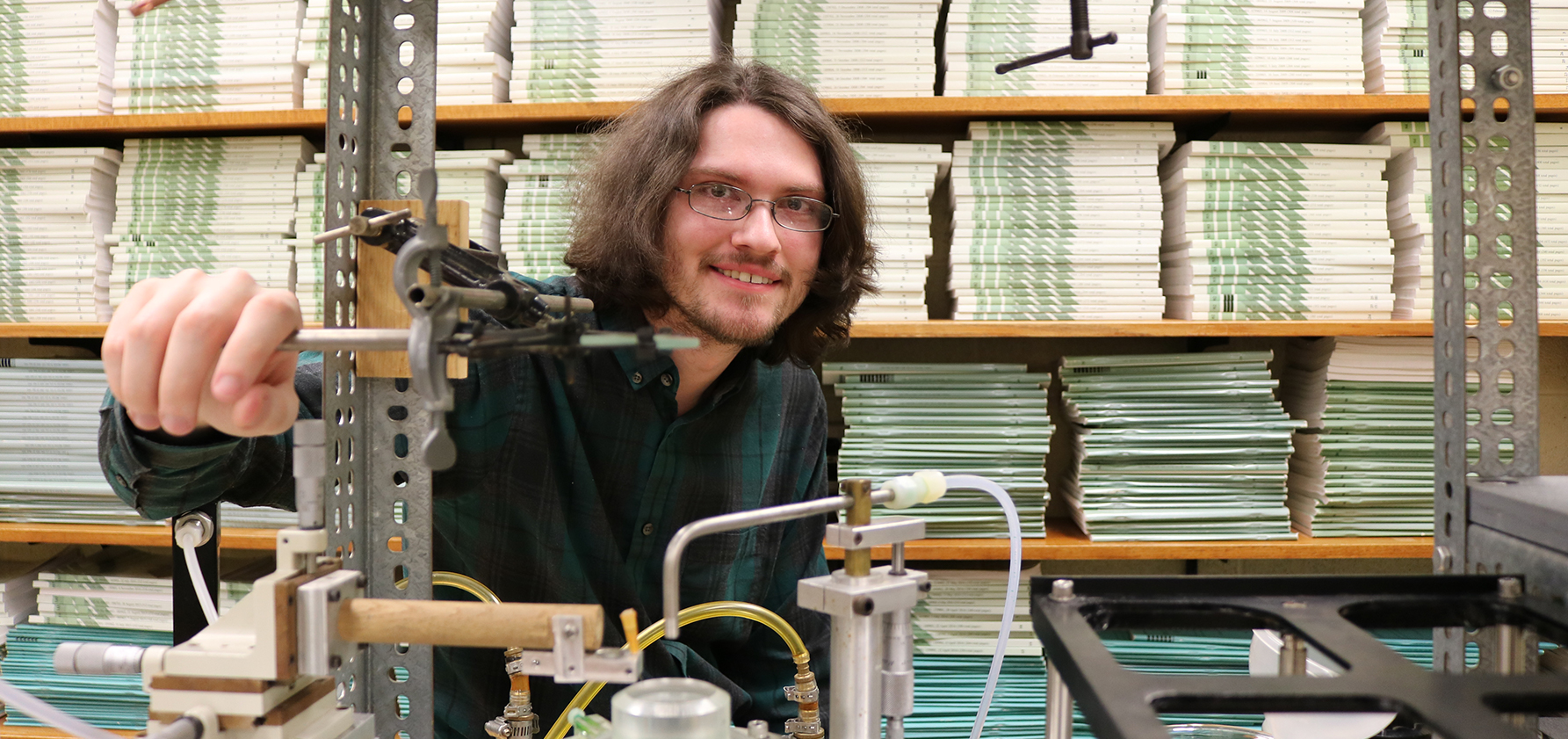
Shane Hansen ’18 graduated with a double major—physics-math and religion—and a minor in chemistry and is currently pursuing a master’s in mechanical engineering at Lehigh University through the 4+1 degree program Moravian College has established with Lehigh. Curious to learn the particulars of why he was offered a place in the master’s program, he asked one of the department heads at Lehigh who told Hansen it was his religion degree that convinced them.
“He went on to describe how he and a team of engineers had traveled to a village in South America where they installed a water filtration system that would run through the night to deliver clean water to the residents for the next day,” Hansen explains. “The villagers, unaccustomed to the availability of clean water and fearing that the system would fail, ran the filtration system nonstop, collecting and storing clean water until the system finally burst and had to be replaced.”
The engineers knew how to install the filtration system but had no understanding of the mind-set of the population they were serving.
“With my background in religion, I will bring a humanistic perspective to a job,” says Hansen whose knowledge of Islam, for example, would influence his approach to an engineering project in the Middle East and impact the ultimate success of that work. It is the liberal arts education Hansen received here at Moravian that broadened his knowledge and will make him a more effective engineer.
The Dual Degree Program
The path to engineering at Moravian begins with an undergraduate degree, usually in physics; chemistry is recommended for those interested in chemical engineering. Students then have four options:
-
Continue onto graduate studies in engineering at the institution of their choice
-
Pursue the 4/1 graduate program, earning a BS in physics from Moravian in four years followed by a master’s degree at Lehigh University in mechanical engineering or mechanics.
-
Opt for the 3/2 dual degree program, earning a BS in physics from Moravian over three years followed by two years of study at Washington University in St. Louis for a BS in one of seven engineering concentrations.
-
Go for a 3/3 through our relationship with Washington University, taking an extra year to add a master’s degree.
Katie’s Choice
Katie Bahnck ’18 chose number 4 with a twist. Not wanting to miss her senior-year experience, she chose to complete a full four years at Moravian before heading to Washington University. When she completes the program there, she will have a BS in physics, and a BS and MS in mechanical engineering.
Bahnck, a first-generation student, came to Moravian to study math and education, but her lifelong interest in science called to her to dive deeper into the field. Inspired by the enthusiasm of Ruth Malenda, assistant professor of physics, she chose to major in physics. “I didn’t know I wanted to do engineering until I took a class in mechanics with Professor Roeder,” says Bahnck. She liked the way the curriculum at Washington University aligned with her undergraduate study, so she applied and was accepted. Now in her second year, she is thrilled with her decision.
Like Moravian, Washington University feels like home to Bahnck. “The university has created a community for dual-degree students,” she explains. “We live together and take the same courses.”
The Moravian Advantage
Like Hansen, Bahnck says her liberal arts background is an asset. “All the students I know who’ve come from a liberal arts institution are more well-rounded than the typical engineering student at Wash U,” she says. “I think that makes it easier for us to move out of our comfort zone.
“Also the people skills I developed at Moravian working at the HUB, as an RA and a 26-point ambassador are an asset,” she adds. “As an engineer you work as part of a team, and my experience at Moravian taught me to listen, be patient, and to not jump to conclusions right away.”
Both Bahnck and Hansen agree that their engineering programs are rigorous, but that Moravian prepared them well. “I wouldn’t have been able to handle the workload at Lehigh if it hadn’t been for the heavy workload I experienced as an undergrad,” says Hansen. “Also, in graduate school, you have to teach yourself the material. In my classes at Moravian, teaching happened, but you also had to learn on your own, so I was prepared for the transition.”
The path to engineering at Moravian College might not be immediate, but it leads students to a fuller, richer, and likely more successful career.